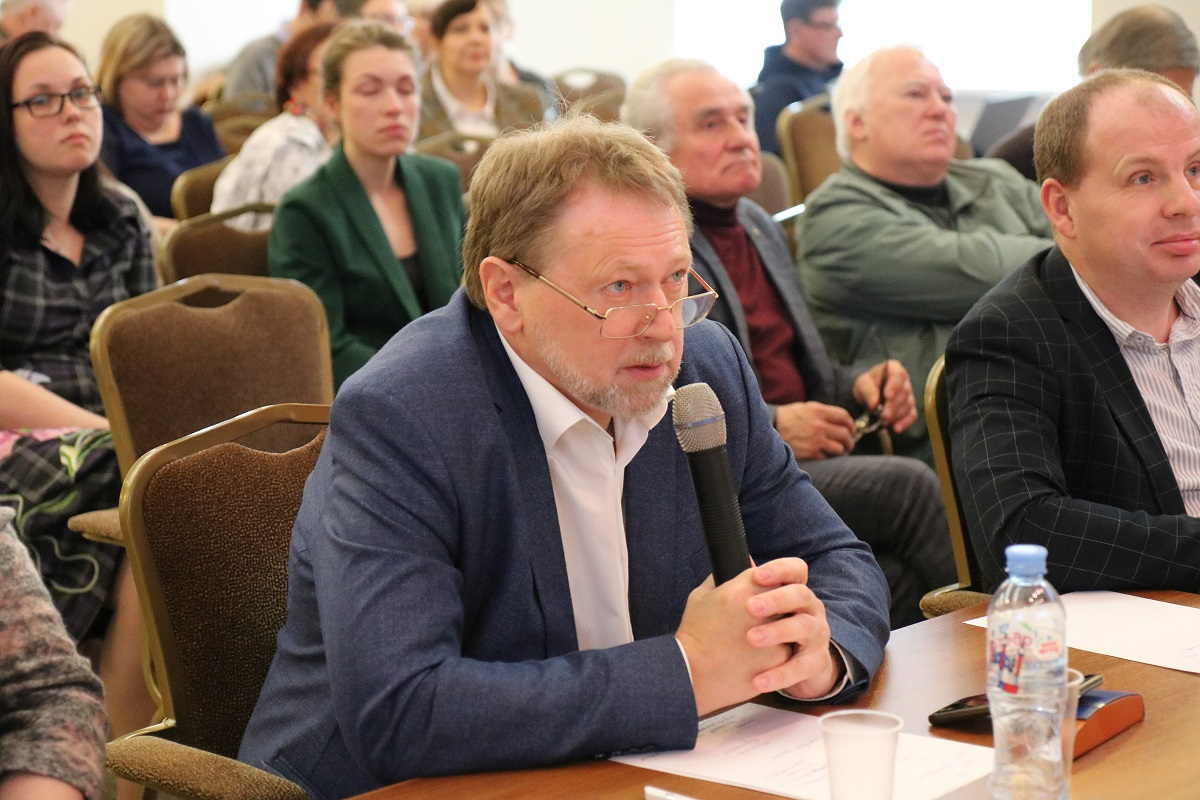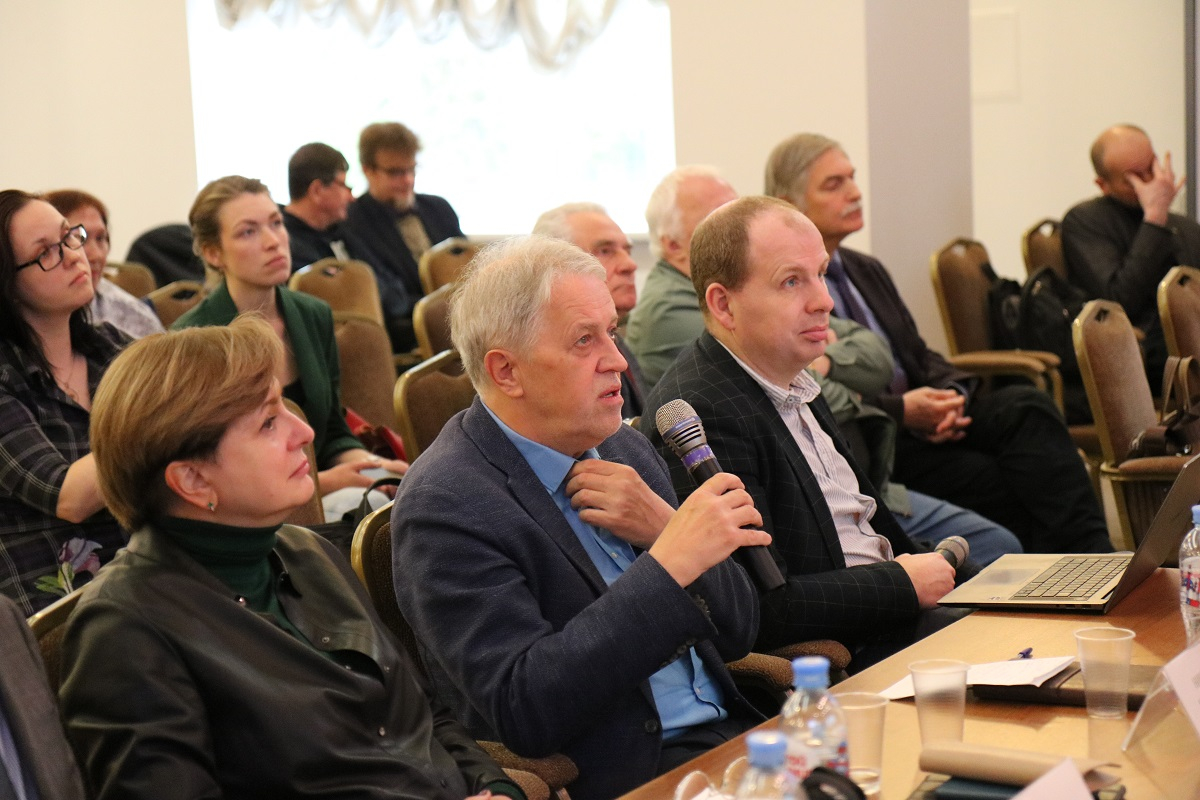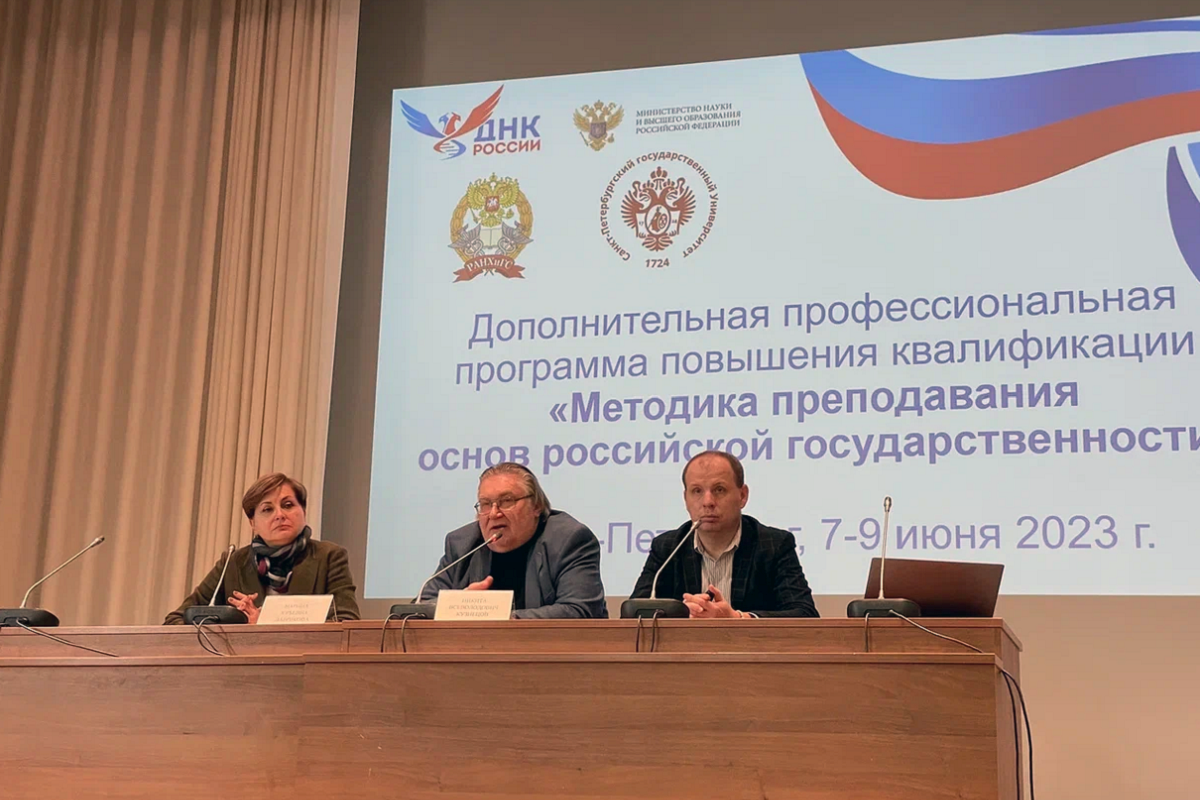More than 800 lecturers from all over Russia apply to take the Fundamentals of Russian Statehood course at St Petersburg University
Training has been organised within the framework of the professional development programme ‘Methods of Teaching the Fundamentals of Russian Statehood’. Retraining at the University was attended by university lecturers from St Petersburg, the Leningrad Region, Vologda, Murmansk, Veliky Novgorod, Petrozavodsk, Pskov, Arkhangelsk, Syktyvkar, Ukhta, Cherepovets, and Vorkuta.
The activities of the face-to-face module ‘Methods of Teaching the Fundamentals of Russian Statehood’ were aimed at qualitative improvement of the level of teaching humanities subjects.
According to the plan of the Ministry of Science and higher Education of the Russian Federation, the course ‘Fundamentals of Russian Statehood’ will be included in all higher education programmes from 1 September 2023. More than 2,000 university lecturers are therefore doing professional development courses.
Marina Lavrikova, Senior Vice-Rector for Academic Activities of St Petersburg University, addressed the lecturers with a welcoming speech. She spoke about the history of the DNA of Russia project, which is being implemented to fulfil the instruction of the President of the Russian Federation. She also stressed the importance of the task assigned to form a new unified course of study. Marina Lavrikova drew the attention of the audience to the meta-subjectivity of the module being developed. This poses certain difficulties in organising the process of teaching the subject.
The DNA of Russia project brought together the academic community to elaborate an integrated approach to the development of teaching, methodological and research support for public policy in the field of enlightenment, higher education and work with young people.
‘The training module presents knowledge from different sciences, each of which has its own scientific-analytical, research and conceptual framework. The developers of the course need therefore to synchronise actions, take advantage of this intensive training as an opportunity to understand the problematic aspects, and develop the necessary competences,’ Marina Lavrikova stressed. ‘So far, such a subject has not been included in the comprehensive higher education programme. All regions of the country should take part in the preparation and implementation of the course.’
In her address, Marina Lavrikova, Senior Vice-Rector for Academic Activities, also touched upon the moral and ethical orientation of the course, which is based on the postulates of the Presidential Executive Order ‘Fundamentals of State Policy for the Preservation and Strengthening of Traditional Russian Spiritual and Moral Values’. In her opinion, many students may now be caught up in the myths spread in the information space. In this regard, teachers should conduct training and educational activities. ‘The meanings that need to be conveyed as part of educational activities are included in the course programme. A university teacher needs to be able to have a conversation with students at an expert level," Marina Lavrikova noted.
The assessment board included leading experts and researchers at the University. Among them were the following: Marina Lavrikova, Senior Vice-Rector for Academic Activities at St Petersburg University; Elvira Zeletdinova, Vice-Rector for Teaching Methods at St Petersburg University; Nikita Kuznetsov, Director of the Institute of Philosophy at St Petersburg University; Professor Aleksandr Kurochkin; Professor Nikolai Skvortsov; Stanislav Eremeev, Deputy of the Legislative Assembly of the Leningrad Region; and Kirill Smirnov, General Director of Information and Publishing Centre of the Government of St Petersburg ‘Petrocentr’.
At the end of her speech, Marina Lavrikova, Senior Vice-Rector for Academic Activities at the University, noted that St Petersburg University is defined not only as a flagship centre that trains high calibre experts within the framework of the federal project ‘DNA of Russia’, but also as a methodological centre for universities of the Northwestern Federal District. The University provides a platform for experts from different subject areas to exchange opinions and develop practical recommendations aimed at improving the level of teaching humanities subjects. Summing up the results, Marina Lavrikova stressed that St Petersburg University will continue to provide methodological support for the project in future.
Nikita Kuznetsov is Director of the Institute of Philosophy at St Petersburg University and Head of the working group for the implementation of the DNA of Russia project. He shared his opinion on the significant semantic aspects of the new course with the programme participants.
We are talking about our future, about what kind of world view our students will have. It is necessary to have a serious and frank dialogue with young people who have come to higher education institutions about our life, state and world view. A world view does not appear in words. It appears only with actions as actions speak louder than words.
Nikita Kuznetsov, Director of the Institute of Philosophy, St Petersburg University
While studying in the programme, the teachers attended thematic lectures, participated in seminars and prepared final projects, which were defended at the final stage of the training module. The trainees presented and successfully defended the results of their work on the formation of structural components and methodological recommendations for lectures and seminars for the course ‘Fundamentals of Russian Statehood’ in front of the assessment board. The certified projects will form the basis of the course, and the lecturers retrained at St Petersburg University will become guides of knowledge about Russian statehood for students throughout Russia from 1 September.




